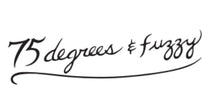Denim, re-designed with the planet in mind. Traditionally denim has large negative footprint behind. Through our inventive and eco-friendly processes, we are committed to the production of guilt-free denim. At Porter Blue, we are always striving to think creatively on how we can reduce, reuse, recycle and keep our products out of landfills. Gone are the days when you had to choose style or sustainability.
All of our collection used Better Cotton denim fabric. Traditional cotton production uses high amounts of water, fertilizer and pesticides. This leaves soil ridden with salt, killing off many needed organisms to maintain soil sustainability. The water irrigation alone can be as high as 25,000 liters per one pound of cotton produced. With Better Cottons alternative farming methods, soil health is maintained and sustained year after year. Water consumption is also reduced by up to 40%. The Better Cotton Initiative helps farmers gain access to knowledge and tools to improve the environmental, social and economic sustainability of cotton production.
All of our metal parts are made up of Post Consumer Recycled Hardware. We use only metal parts that have already lived a full life. Whenever a product has reached its end state, the metal hardware is removed from the garment or item, and melted back down to be re-issued into another form—back into the world.
All of our packaging materials are composed of 100% recycled content, 90% post-consumer fibers. We use biodegradable hang tags, recyclable individual poly bags and compostable shipping mailers. Keep a good thing going and please recycle, or compost, after opening your new pair of jeans.
Traditional denim manufacturing is one of the most harmful and toxic processes in the apparel industry. We have personally hand-picked our manufacturing partner due to our shared commitment of cleaning up the way clothing is produced. We use waterless washing techniques called Laser Finishing Technology and Ozone (O3) & E-Flow Machines to finish our garments. These techniques use up to 65% less energy, 75% less water and 80% less chemicals. These techniques also cut down the excessive manual labor that traditional dry processing methods take on factory artisans.
In addition, as of 2020, our factory has complied with Zero Discharge of Hazardous Chemicals (ZDHC), which means no dangerous chemicals are emitted from our factory plant.
Our factory also has a state of the art waste water treatment plant. It is estimated that 70% of Asia’s rivers and lakes are contaminated by the 2.5 billion gallons of waste water produced by the textile industry. Waste water treatment is the end step of our denim finish process. Instead of pumping toxic run off water back into local communities—harming the community’s food and water supply—the water is repurposed through many cycles of distilling and filtering. Our factory returns the water it uses back into its original state: clean, clear and even safe enough to drink.
Our factory has an extensive zero tolerance policy that can be read about on our Sustainability and Ethics report linked below. All general labor practices are visible for all factory employees to clearly see in public areas. Our factory also provides free meals, free transportation to those in need (that live outside the surrounding areas), free housing to those in need, and free training incentive programs. Our factory also teaches new skills to move through and up different parts of the factory.





